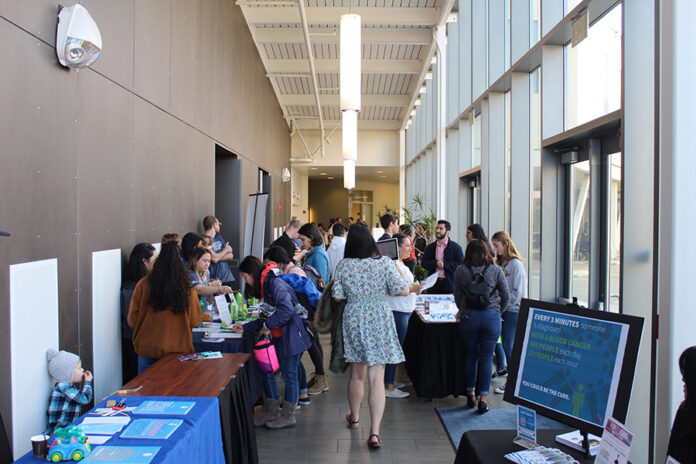Free event gathered around 1,000 registrants
The third annual Mental Health Conference took place on the weekend of Jan. 12 and 13 at the UC Davis Conference Center. This was the first year the event was completely free of charge for students and other attendees, and registration slots quickly filled up before the weekend events even began.
This event was hosted by the UC Davis Mental Health Initiative, an entirely student-run committee within ASUCD.
The two-day conference featured a number of workshops led by professors and professionals, panels hosted by students, discussion spaces, performances and a resource fair. There were two allotted workshop sessions on each day of the conference, during which student participants had the opportunity to choose between three different sessions, all pertaining to different topics.
Before entering the conference center, guests were encouraged to observe the community agreements set in place which were aimed at creating an inclusive environment. The agreements included using gender inclusive language, refraining from the overuse of technology, upholding a respect for confidentiality and using snapping as a sign of support.
Around 43.8 million adults experience some sort of mental illness in a given year, with nearly 60 percent of that population lacking any form of mental health services, such as counseling or medication, according to the National Alliance on Mental Illness. Survey data from UC Davis also supports these statistics, reporting that 64.8 percent of UC Davis undergraduate students felt overwhelming anxiety in 2017. Directors of the Mental Health Initiative felt that opening up a discussion around mental health on campus would help lower these numbers and help students feel more supported.
“The event is definitely about raising awareness, but I think it’s also about expanding people’s notions of what mental health really stands for,” said Katrina Manrique, a co-director of the UC Davis Mental Health Initiative. “A lot of people, when they think of mental health, […] think of it very much within a medical setting when in reality, it’s intersected with a ton of ideas, such as gender and race.”
Manrique believes the statistics on mental illnesses speak for themselves — even though someone personally may not struggle with mental health, chances are they know somebody who does.
Several attendees expressed their gratefulness to the Mental Health Initiative for hosting this event once again, expressing the sentiment that the event helps to both de-stigmatize mental illness and show how broad the term “mental health” really is.
“This event is really about raising awareness and support at school and around Davis,” said Cindy Ceja, a third-year communication and psychology double major. “We are on a college campus, so there’s always a need to talk about mental health. Everyone has their own experience with it, and we really should be recognizing how it means different things to different people.”
Ceja, an attendant of the event as well as a volunteer on the first day of the conference, said more than 1,000 individuals registered on the Eventbrite page, and by the first half of Saturday around 200 people had checked in.
The different presenters each chose to approach the subject of mental health in a way they felt was relevant to their own subject matter. For example, Dr. Cameron Carter and Tara Niendam, both from the UC Davis Health Department, focused their discussion on prevention and early intervention regarding youth mental health.
Carter founded the UC Davis Early Diagnosis and Preventive Treatment programs which focus on early-on psychosis care. Both Carter and Niendam addressed mental health in a more scientific way, detailing methods for stigma reduction and new techniques, such as brain imaging, to improve the early detection of mental health issues in teens and young adults.
Presenters such as Raul Hernandez Garcia and Celestina Pearl from the St. James Infirmary referred to mental health in a more socially constructed sense.
The St. James Infirmary is a health and safety clinic for sex workers and their families in San Francisco. Garcia and Pearl focused their discussion on biases against sex work and the decriminalization that they feel needs to take place.
They said it was critical that people understand how personal values may look different from person to person, and that using judgement and bias against those who participate in sex work can be damaging to their mental states.
“As long as individuals are making decisions for themselves, they should be free to go about their choices without judgement,” Pearl said.
“We put a lot of focus on supporting our participants, helping them live their best life on their own terms, and not using our own judgements or forcing how we think they should live their lives onto them,” Pearl said. “It turns out, when people feel supported, they’re able to reach their goals much easier.”
At the close of the conference, Manrique felt the event was a success and said she was grateful for everyone who helped to make the event possible. Her next goal for the initiative, before she graduates this spring, is to drive up participation and visibility for the upcoming Mental Health Awareness Month this May.
Written by: Claire Dodd — campus@theaggie.org




